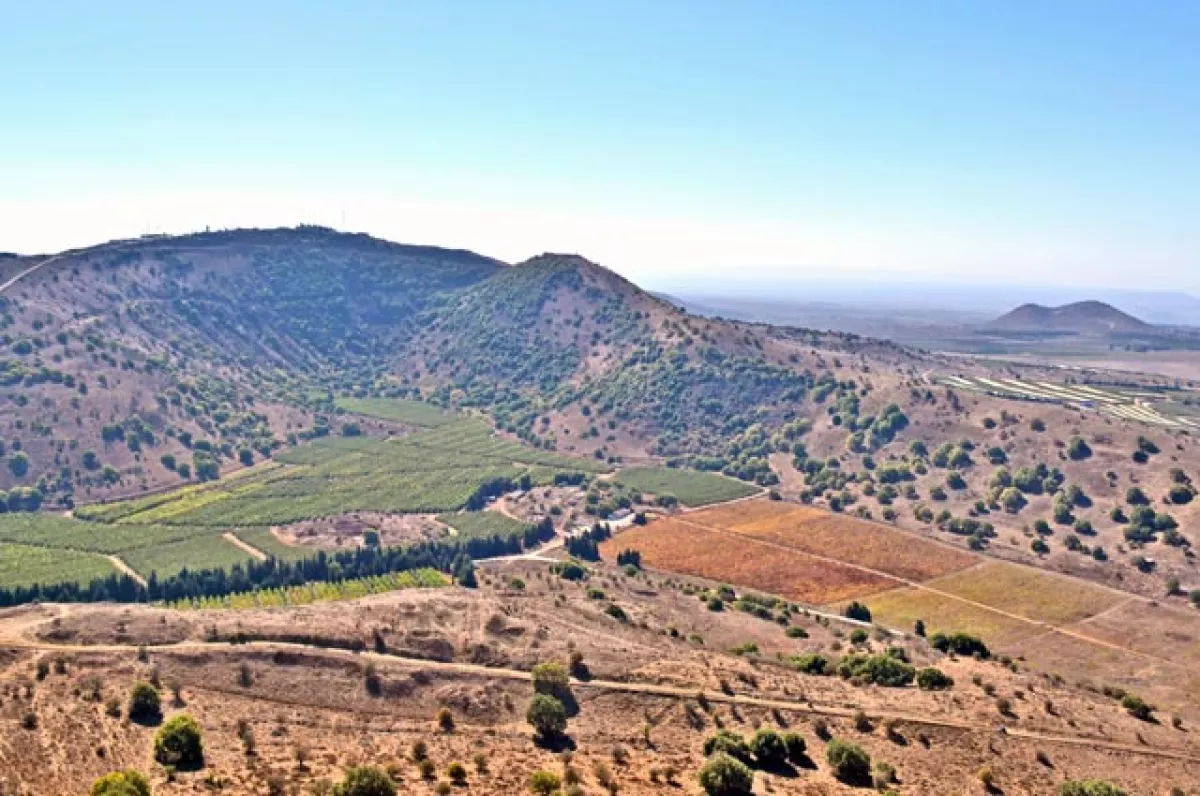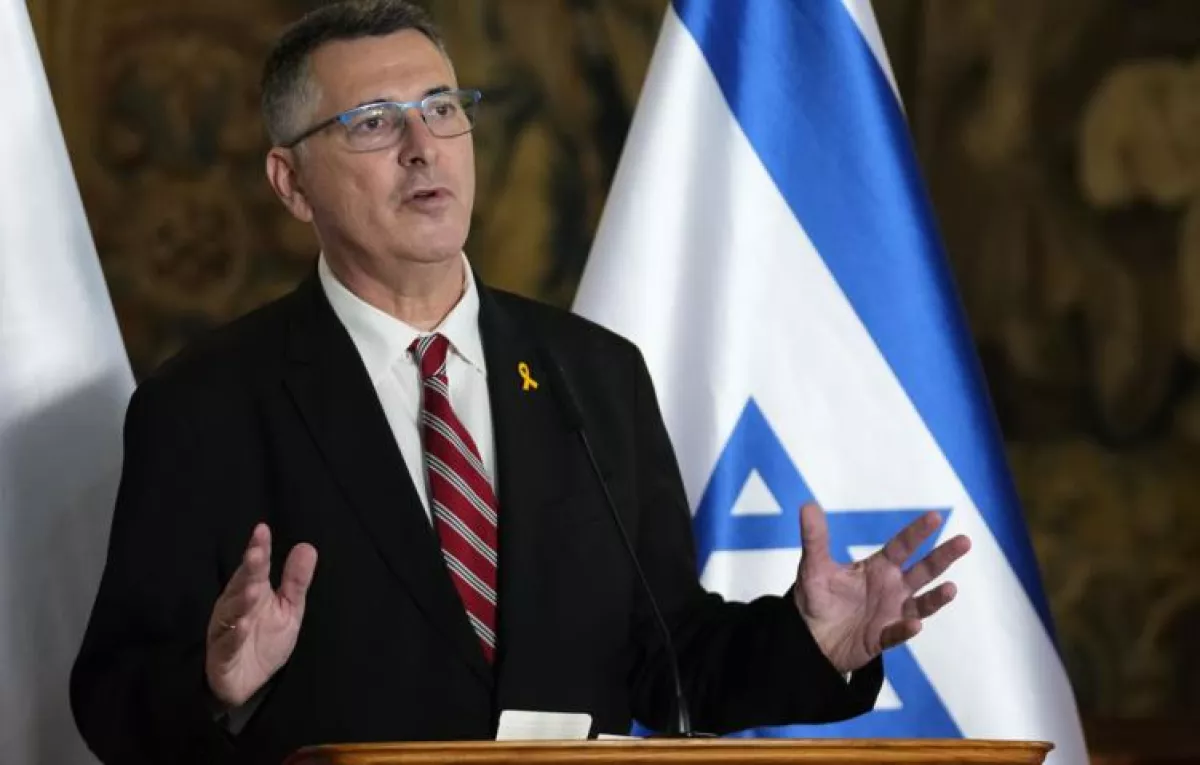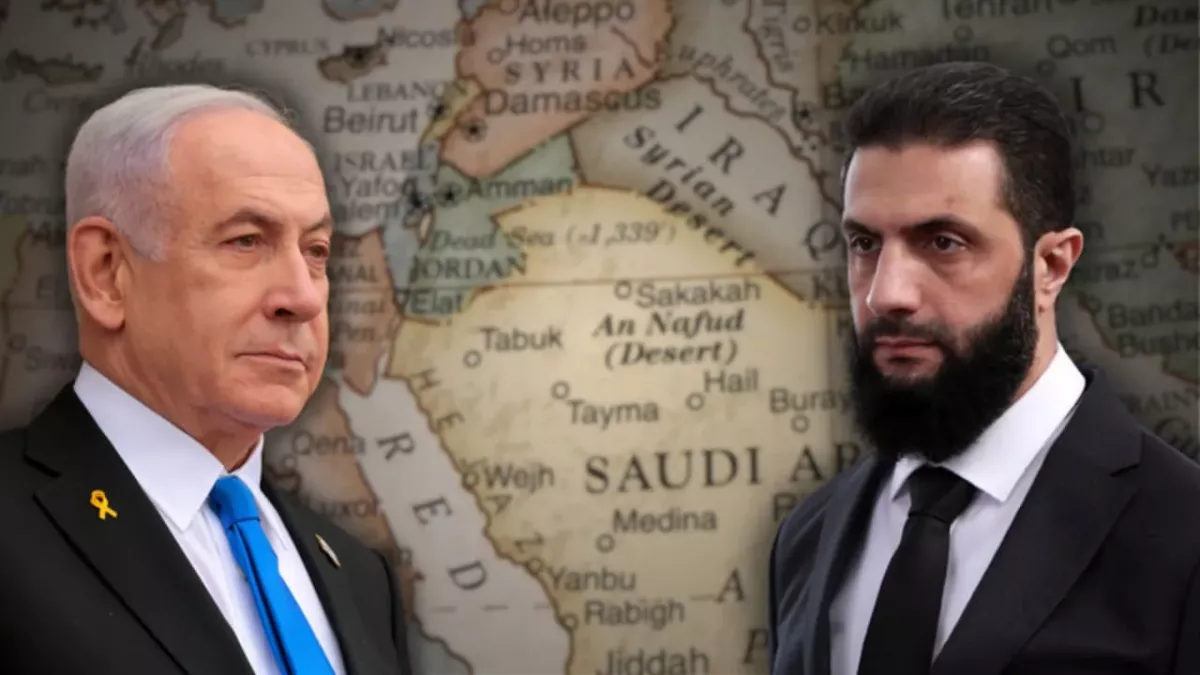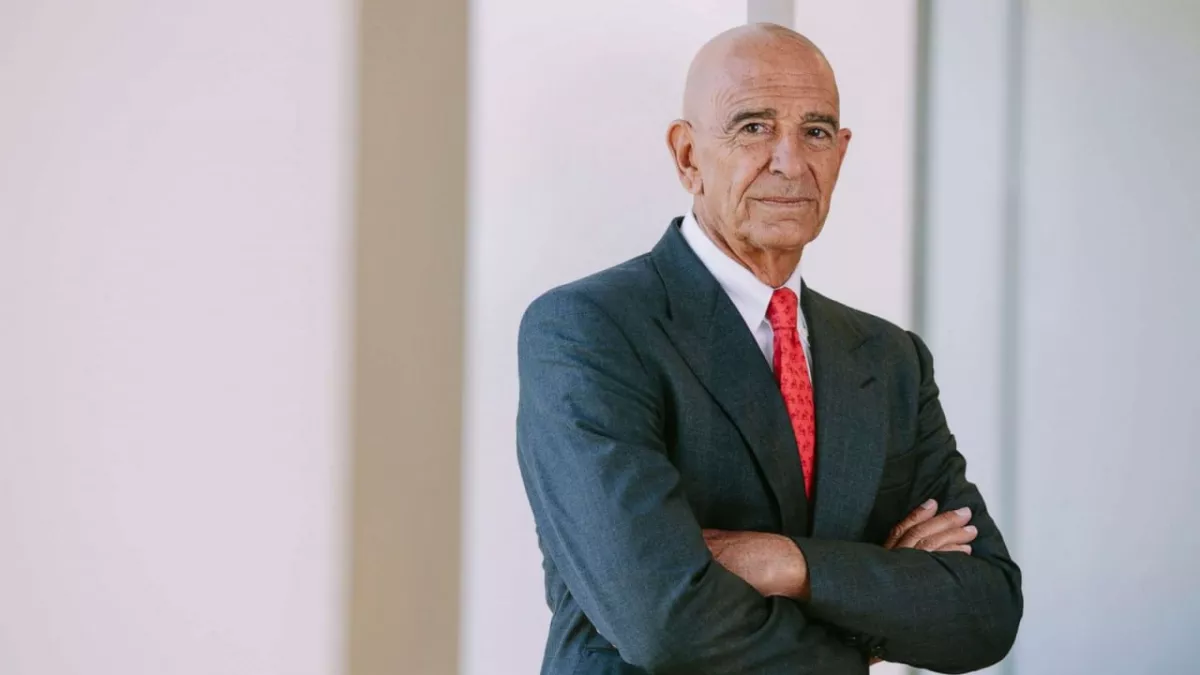Israel – Syria: Is peace on the horizon? Breaking the ice
A notable recent development in Middle Eastern affairs is the emerging thaw between Israel and Syria. Statements from several politicians suggest that these two countries, which have technically been at war since their founding, may be moving toward signing a peace agreement in the near future.
For instance, the respected publication Times of Israel reported on June 30 that Israel and Syria are engaged in “advanced talks.” The primary focus of these talks is security. Syria’s administration, led by Ahmed al-Sharaa, has made it clear that any agreement will prohibit Israel from conducting military operations or strikes within Syrian territory. Conversely, Israel insists on maintaining the right to defend itself and respond to threats—particularly if, as part of the agreement, Israeli Defence Forces withdraw from border areas adjacent to Syria.
A senior Israeli official, speaking anonymously, indicated that there is currently no concrete timeline for a full normalisation of relations. “For now there isn’t anything concrete,” the official said. He added that “Syrian President Ahmed al-Sharaa seems that he is on the right path to try to establish some kind of government that benefits from the economy and investments, but you never know. We are very careful, very careful.”

He also emphasised that “There is absolutely an aspiration to expand the Abraham Accords [the agreements on normalization of relations between Arab countries and Israel], and it’s no secret that we want to see Syria in this.” According to him, “there may be an opportunity,” but even if agreements are reached, Israel will not withdraw from Mount Hermon or the Golan Heights.
Almost immediately, the anonymous source’s information was confirmed by Israeli Foreign Minister Gideon Sa’ar, who expressed readiness to normalise relations with Syria and Lebanon and to include these countries in the Abraham Accords. He also confirmed that the Golan Heights will remain part of the State of Israel in any case. Interestingly, not long ago Sa’ar called Ahmed al-Sharaa a “hidden terrorist” and urged people “not to fall under his charm.” However, it seems that after the 12-day Israeli-Iranian war, the Israeli cabinet’s approach to the Syrian issue has undergone some changes. Syria’s neutrality toward Israel during the military conflict likely played a role.

Reports of rapprochement are also confirmed by publications in the Arab press. For example, the Lebanese news channel LBCI reported that Syria does not demand the return of the Golan Heights as part of any potential peace agreement. Instead, Damascus is seeking recognition by Israel of the new regime, the withdrawal of IDF units from territories in southern Syria that they have held since January 2024, the conclusion of a series of security agreements in the south, and support from the United States, the nature of which remains unclear.
The United States, it seems, is playing an important role in the negotiation process between the two countries. U.S. and Israeli officials confirmed to the Axios news agency that “preliminary discussions” have begun between Israel and Syria regarding a possible security agreement. “We are having very soft preliminary discussions. Diplomatic breakthroughs are like unwrapping an onion — we are peeling,” said a U.S. representative.
Meanwhile, two senior Israeli officials noted that a deal is possible but emphasised that it will take a long time to reach an agreement. According to the U.S. representative, currently mid-level officials are involved in the negotiations, and a meeting between the leaders of Israel and Syria is not yet being discussed.
It was also noted that the United States supports a gradual process that would help build trust and improve relations between Israel and Syria.
However, Israel insists on guarantees that “any negotiations will ultimately lead to a full peace agreement and normalization of relations.” Prime Minister Benjamin Netanyahu aims for a phased achievement of agreements, including the modernisation of the 1974 Disengagement Agreement, which involves establishing a buffer zone, maintaining the ceasefire regime, and the immediate return of all prisoners of war. At the same time, Israeli officials view the proposed buffer zone and the Syrian territory occupied by Israel (the Syrian border provinces currently held by IDF forces—the suggested phrasing) as the main leverage in the negotiations, stating that troop withdrawal is possible only in exchange for a comprehensive peace.

There are many difficulties and pitfalls on the path to rapprochement between the two countries. As The Jerusalem Post writes, even if agreements are reached, “it will be a cold peace, at least in the initial stage,” and Israelis should not expect “eating hummus in Damascus or sailing in Latakia.”
On June 30, Haaretz, citing the Lebanese newspaper Al-Akhbar, reported that there are disagreements within the Syrian government regarding the future agreement with Israel. Many associates of President Ahmed al-Sharaa “calling on the U.S. mediator to consider less drastic options, such as setting up a security arrangement in the border areas and having Israel withdraw from the territory it has entered since December.” In response, the Syrian government would be ready to declare that “Syria will declare that it ceases hostilities with Israel.”
Full normalization of relations with Israel within the framework of the Abraham Accords and the inevitable territorial concessions will be difficult to justify in the eyes of Syrian public opinion. As an unnamed Arab diplomat told Haaretz, “All that the government in Syria wants from Israel right now is for Israel to calm down and not embarrass it.” In his view, there are many radical Islamists around al-Sharaa who will not forgive him for making too drastic concessions to Israel.
At the same time, American Rabbi Abraham Cooper, who met with the Syrian president about two weeks ago, expressed the opinion that a meeting between Ahmed al-Sharaa and Benjamin Netanyahu is more than likely. In September, the Syrian leader intends to travel to New York for the United Nations General Assembly session, and according to Israeli sources in Damascus, a meeting between al-Sharaa and the Israeli prime minister on the sidelines of the Assembly is not excluded. The mediator could be Saudi Arabia’s crown prince Mohammed bin Salman, who, incidentally, is expected to arrive in Damascus very soon.
A possible Syrian-Israeli rapprochement is unlikely to be approved in Ankara, which regards Syria as within its sphere of influence. As noted in an interview with the Turkish news agency Anadolu by the U.S. special envoy for Syria and the American ambassador to Ankara, Tom Barrack, all positive changes in Syria have been the result of efforts by Türkiye and its leadership. Therefore, it is unlikely that the Turkish leadership will be ready to replace Russian-Iranian influence in Damascus with Saudi-Israeli influence.

In his aforementioned interview, Barrack also noted the following: “Israel needs to be redefined, it is on the process of being redefined. And what just happened between Israel and Iran is an opportunity for all of us to say, time out, let's create a new road.” In his view, Israel may soon sign peace agreements not only with Syria but also with Lebanon.
As can be seen from the picture presented, there are indeed chances for normalisation of relations between Israel and Syria, although at the moment it is difficult to estimate them in percentage terms. However, the desire present on both sides allows a glimmer of hope that an era of peace may dawn in the Middle East.








